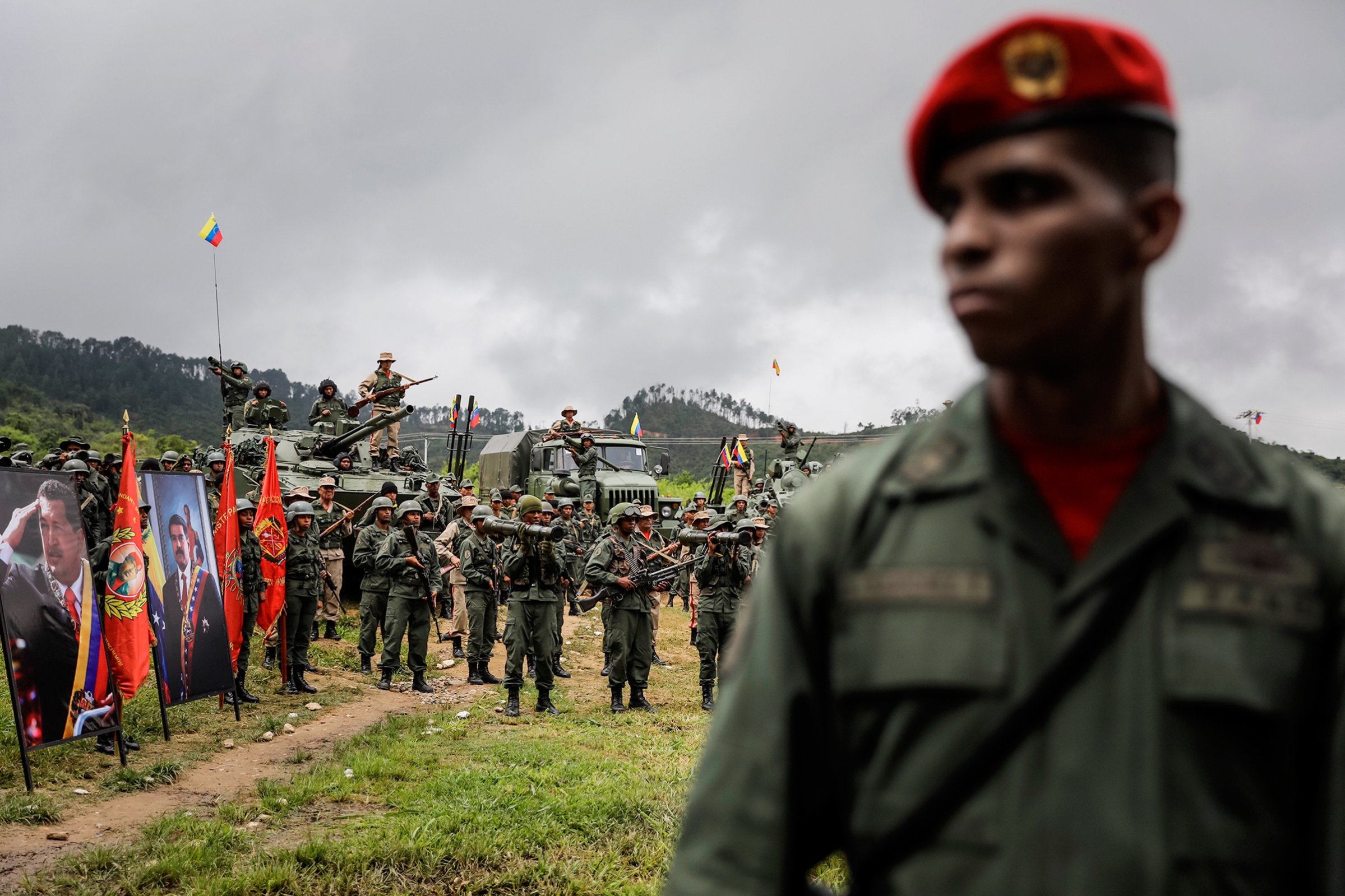
There’s no one way to produce a U.S. foreign policy. “Realists” hew to a pragmatic view of the world. Moralists are more guided by convictions. Academics identify a Hamiltonian school of thought, also a Wilsonian, Jeffersonian and Jacksonian one.
But Donald Trump may be the first President who seems to just make it up on the fly. In the dog days of August, U.S. officials scrambled to brace up a global architecture that shuddered with each new pronouncement Trump appeared to have made off the cuff.
In Asia the highest-ranking U.S. military officer flew to Seoul to walk back Trump’s Aug. 8 vow, which aides confirmed he made without consulting anyone, that any future threat from Pyongyang “will be met with fire and fury like the world has never seen.” Joint Chiefs of Staff Chairman Joseph F. Dunford Jr. pointedly told South Korea’s leader Moon Jae-in the crisis in the Korean Peninsula ought to be defused “through diplomatic and economic pressure.” Dunford then flew on to Beijing and Tokyo to offer more such assurances.
Another Trump stunner landed closer to home. In South America, Vice President Mike Pence was dealing with the backlash from an Aug. 11 news conference dominated by Trump’s threats to North Korea. The President was asked, in passing, about Venezuela. The oil-rich country, which in 2001 was the wealthiest on the continent, is in a dire political and economic crisis, with food in short supply and hospitals struggling for electricity. With the government of President Nicolás Maduro grabbing more power, and protests edging toward insurgency, the country is at risk of civil war. But so far it’s proved a threat only to its own people.
“We have many options for Venezuela,” Trump declared. “And by the way, I am not going to rule out a military option.”
In Latin America, where neighboring countries had been uniting impressively against Maduro, that statement immediately made Washington the villain–the long history of U.S. interference and invasion in the region lurching out of a past that previous Presidents had taken pains to disavow. “Since friends have to tell them the truth, I’ve told Vice President Pence the possibility of military intervention shouldn’t even be considered,” said Colombian President Juan Manuel Santos, whose Defense Secretary called Trump’s threat “crazy.” Pence said, “Trump’s made it very clear we will not stand by while Venezuela collapses into dictatorship,” though there was no clear role for the U.S. military beyond unifying Venezuelan sentiment against it. Maduro called for military exercises at a lectern with a sign reading, Trump Keep Out of Latin America.
“Trump’s comments appeared to be, as usual, a sudden outburst that was not thought through,” Riordan Roett, head of Latin American studies at Johns Hopkins, told the New York Times. “It puts the U.S. in the position of the ‘bully,’ not unlike the warmongering over North Korea.”
U.S. Presidents usually respond to provocations. Trump likes to produce them: in June his surprise tweets in support of the Saudi Arabia–led campaign to isolate Qatar elevated a simmering rivalry between two U.S. allies into a full-on regional crisis, in a Middle East that already has plenty of them. And his continued battering of the Iran nuclear accord–even as he technically affirms it, as the agreement requires a President to do every six months–gives comfort to Iranian hard-liners already keenly aware of North Korea’s accomplishments. On Aug. 15, Iranian President Hassan Rouhani felt compelled to warn that the country’s nuclear program could be resumed “within hours” if Trump imposes threatened new sanctions. “The hard-liners in Iran are feeling hopeful that if the deal unravels, they won’t be blamed for it–the U.S. will be blamed for it,” says Karim Sadjadpour, an Iran expert at the Carnegie Endowment for International Peace. “It’s the opposite of five years ago, when there was a bombastic Iranian President. They feel like Ahmadinejad is in Washington.”
Will Trump’s extemporaneous approach to a complicated world one day coalesce into a new school of foreign policy? It’s a question diplomats might take up, once they’re done rushing around extinguishing the fires he keeps lighting.
More Must-Reads from TIME
- Donald Trump Is TIME's 2024 Person of the Year
- Why We Chose Trump as Person of the Year
- Is Intermittent Fasting Good or Bad for You?
- The 100 Must-Read Books of 2024
- The 20 Best Christmas TV Episodes
- Column: If Optimism Feels Ridiculous Now, Try Hope
- The Future of Climate Action Is Trade Policy
- Merle Bombardieri Is Helping People Make the Baby Decision
Contact us at letters@time.com